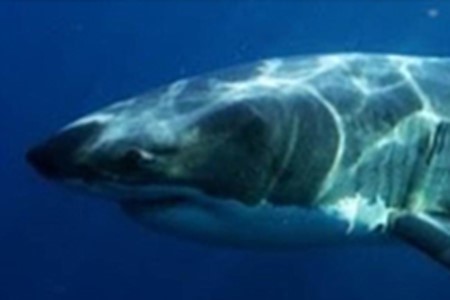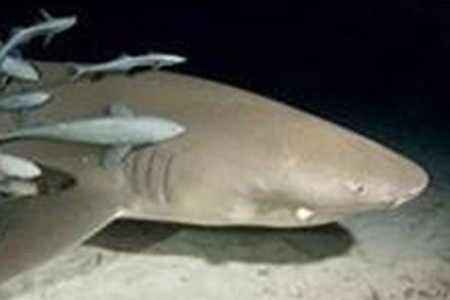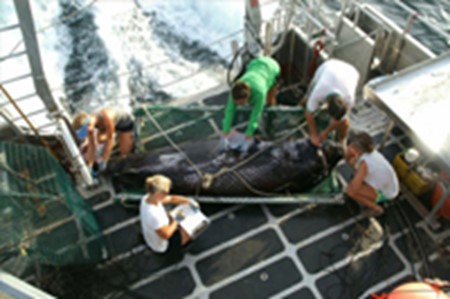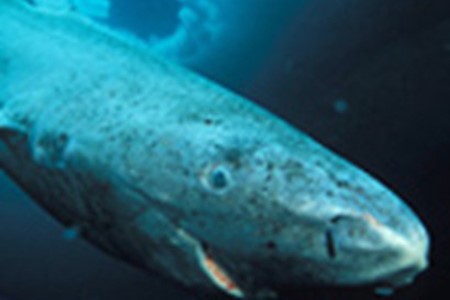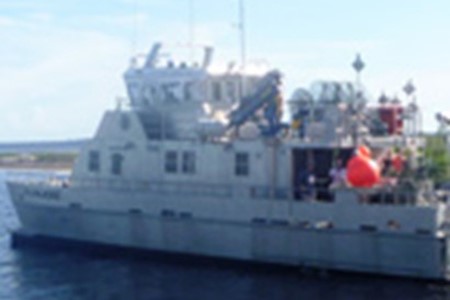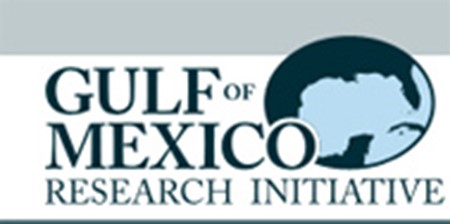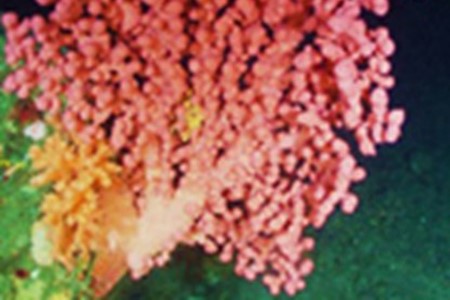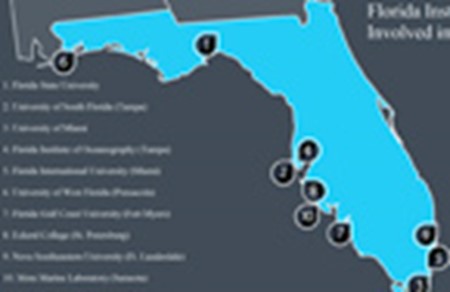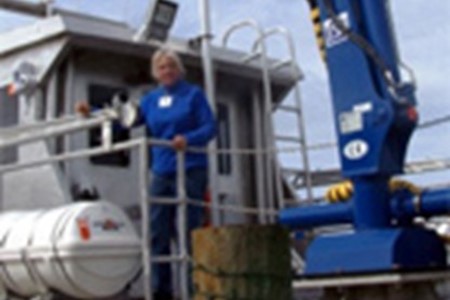The tale of a 9-foot-long shark that a filmmaker suspects was consumed by a monstrous "super-predator" is now consuming a share of the Internet's spotlight, 11 years after it happened.
Tracking a Tagged Shark (Facebook)
Dr. Dean Grubbs and his graduate students have a shark they tagged off shore from the FSU Marine Lab found in south Florida.


